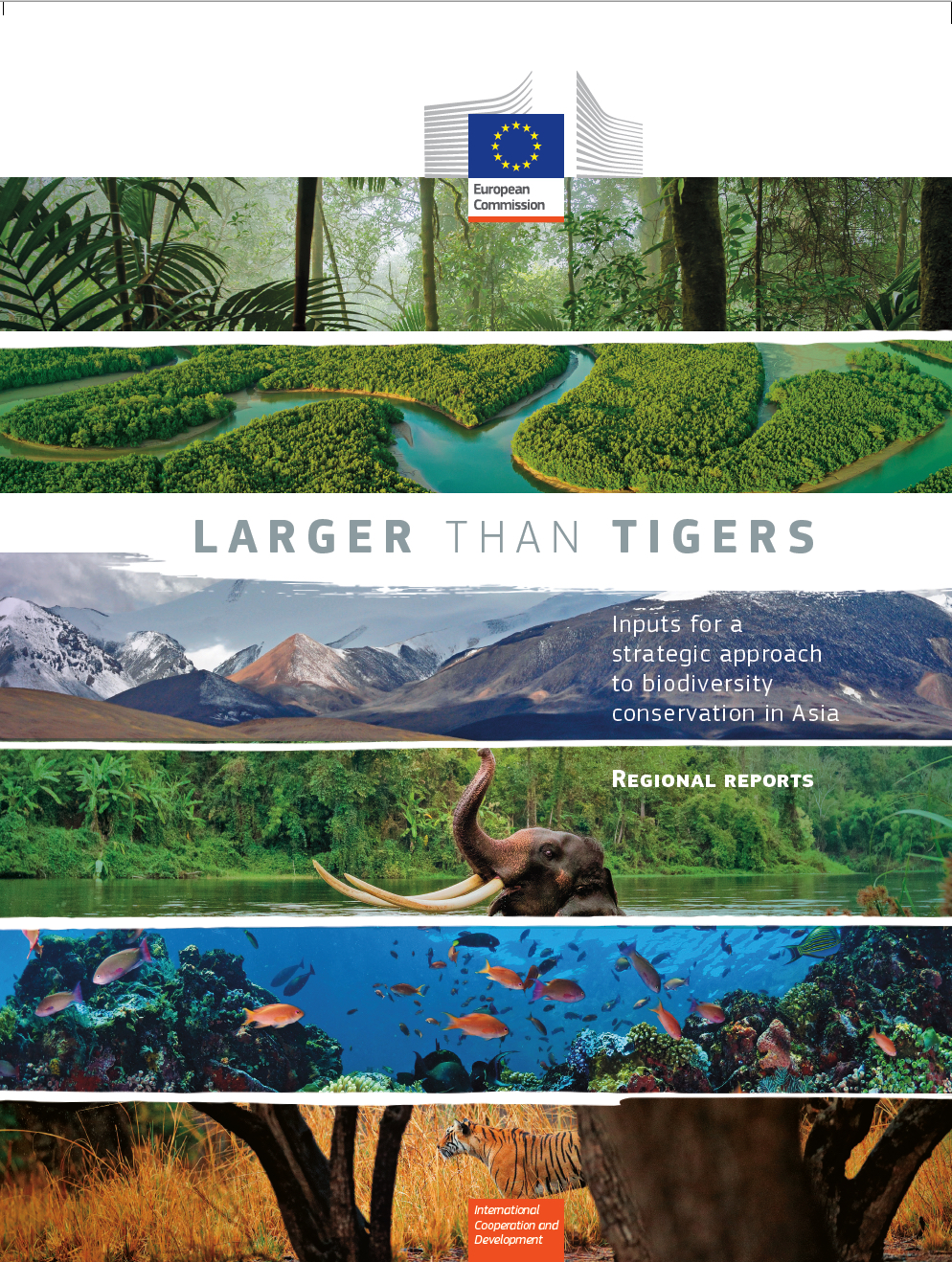Just published…

Related topics
Biodiversity and ecosystem servicesdate: 27/09/2018
The second volume of Larger than Tigers follows the Synthesis report published in May, and is the latest publication from the European Commission’s Directorate-General for International Cooperation and Development setting out a strategic framework for biodiversity conservation. Larger than Elephants (for Africa) was published in 2016 and Larger than Jaguars (for Latin America) is planned for 2019.
Asia is home to over half of the world's population and a fifth of its landmass. But it is also home to 12 of the world’s 36 biodiversity hotspots, with 43% of the world’s bird, mammal, reptile and amphibian species. These diverse terrestrial, freshwater and marine ecosystems are threatened by rapid population and economic growth. In all, 5 300 species in the region are classified as threatened, over 20 % of all threatened species globally. And as Commissioner Neven Mimica writes in his Foreword, ‘…the problem extends far beyond the survival of iconic animals such as tigers, orang-utans, elephants or rhinos. Vanishing species are important components of complex natural ecosystems that provide water and food, regulate climate, process waste products, pollinate crops, and support a growing tourism industry.’
Developed in collaboration with over 380 conservation experts and 150 organisations, the report covers 25 countries, from Iran to mainland China and Kazakhstan to Papua New Guinea, and sets out the ‘where, why and how’ for conservation priorities to guide EU development cooperation in Asia. While protected areas will always be at the heart of conservation strategies, alone they cannot safeguard all the ecosystem services that biodiversity provides. Certain landscapes and seascapes outside protected areas must also be priority targets for sustainable natural resource management intervention. The illegal and unsustainable wildlife trade, which is emptying forests, steppes and reefs, also requires robust and targeted actions. Finally, civil society, the private sector and media have a crucial role to play in facilitating biodiversity conservation in the region.
The two Larger than Tigers reports can be downloaded at this link: https://ec.europa.eu/europeaid/larger-tigers-inputs-strategic-approach-biodiversity-conservation-asia-regional-reports_en
